Results
-
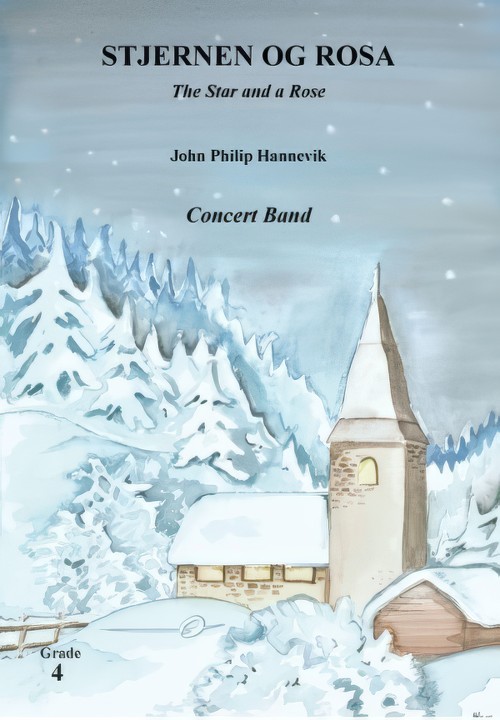 £122.20
£122.20Stjernen og Rosa (The Star and a Rose) (Concert Band - Score and Parts) - Hannevik, John Philip
The Star and a Rose is a big-scale Christmas piece for band, featuring four seasonal chorales.The first is a Gregorian-like chant Hodie Christus natus est.In this section of the piece, a soloist can be placed away from the band, maybe on a gallery. The soloist can be a tenor instrument, maybe trombone, or you can feature a vocal soloist. After this, the music leads us on to the old German Christmas chorale Lo, how a rose e'er blooming. This song is given a fairly rhythmical treatment, but make sure that the melody is presented in a cantabile style. An interlude follows, before the piece presents one of the most used and loved Scandinavian Christmas chorales, Mitt hjerte alltid vanker (My Heart will always wander), composed by the Danish bishop Hans Adolph Brorson around 1732. This song is building towards a climax, before the solo horn brings it all down to the Stable view described in the lyrics. Then comes a transition that brings us in to the final section of the piece, which presents the international Christmas Carol Adeste Fideles. As many will notice, I have borrowed a section from David Wilcocks majestic harmonization towards the end.The title of the piece has its background form the lyrics in My heart will always wander, where the text speaks about the stars in the sky. But also in the Latin text for Adeste Fideles: Stella duce, Magi, Christum adorantes. The Rose is of course from the lyrics in the chorale Lo, how a Rose.Duration: 10.30
Estimated dispatch 7-14 working days
-
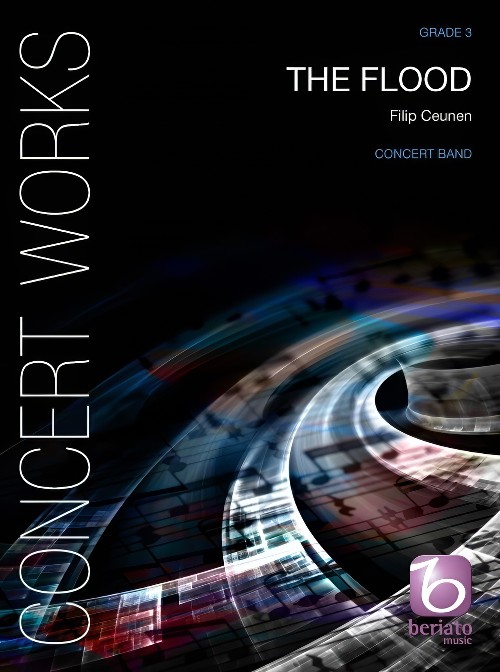 £104.99
£104.99The Flood (Concert Band - Score and Parts) - Ceunen, Filip
The Flood was commissioned by Music Society Maris Sonores from Biddinghuizen, the Netherlands, on the occasion of its 55th anniversary. In this colourful composition, the name of the society has been inventively woven into the music, Maris Sonores meaning sounds of the sea, by means of key clicks in the flutes and clarinets, wind effects in various brass and woodwind instruments along with timpani, as well as sound effects in the small percussion. In addition, the history of the town is also reflected musically. Many centuries ago, around the year 800, a hamlet by the name of Bidningahusum already existed; unfortunately, it fell victim to the water of the then Zuiderzee. Later, the catastrophic flood of 1170 dealt the final blow. In the 1960s, there was a call for pioneers to once more build a town carrying the name Biddinghuizen in the polder of Eastern Flevoland - and so it happened. This versatile work has been written in such a way that many bands will be able to play it. Each instrument group comes out well, so that The Flood will be a joy for players and listeners alike. Duration: 9.30
Estimated dispatch 7-14 working days
-
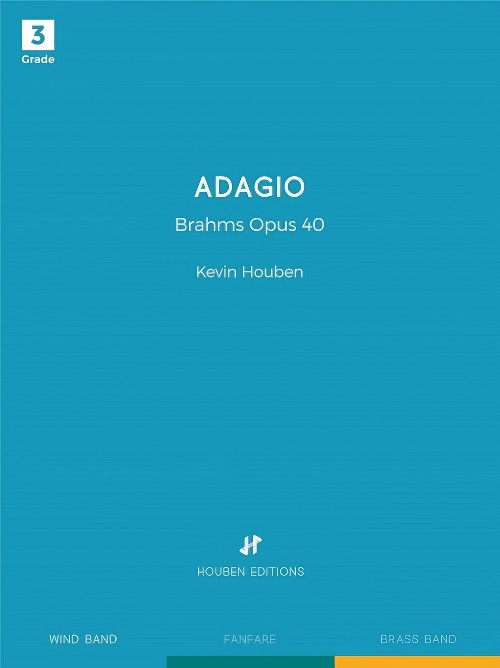 £68.80
£68.80Adagio (Concert Band - Score and Parts) - Brahms, Johannes - Houben, Kevin
Johannes Brahms can be considered to be one of the top composers of the nineteenth century chamber music. He was a giant in this field and an eminent successor of Beethoven and Haydn. A masterpiece from his chamber music oeuvre is the trio in Eb opus 40 for piano, violin and natural French horn. In 1865, the year of his Horn trio, Brahms's mother Christiane died. It's well known that he fostered deep feelings for her. The slow part of the Horn trio with the tempo indication Adagio Mesto (sad) can be considered as a lamentation for his mother. The first performance of the piece took place in Zurich on 28th November 1865 and it was published a year later in November 1866. In this version for Wind Band Kevin Houben stays as true as possible to the original. The result is a deep and dark orchestration of the wonderful Adagio Mesto. A challenge for any orchestra and extremely suitable as concert piece. Duration: 6.00
Estimated dispatch 7-14 working days
-
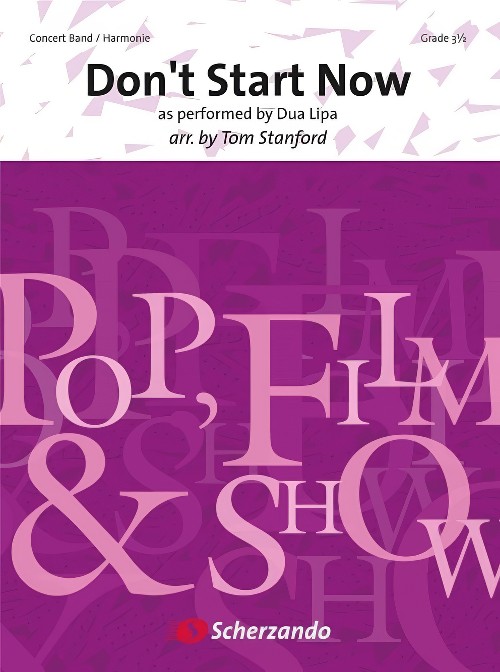 £84.99
£84.99Don't Start Now (Concert Band - Score and Parts) - Stanford, Tom
Don't Start Now, by the British singer Dua Lipa, is the first single from her second studio album, Future Nostalgia. The accompanying music video was uploaded to her YouTube channel upon the single's release. In the song, the singer tells her ex-lover that she is now over him. She gave her first live performance of it on The Graham Norton Show, after that she sang it a number of times at various award shows, TV programmes and music festivals. This arrangement by Tom Stanford will make sure that this disco pop song will also find its way into the world of wind music. Duration: 3.00
Estimated dispatch 7-14 working days
-
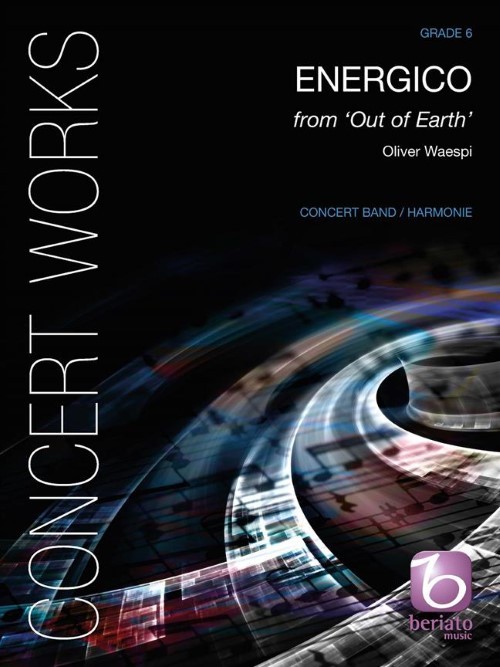 £239.99
£239.99Energico (Concert Band - Score and Parts) - Waespi, Oliver
Energico is the third movement from the composition Out of Earth, a musical exploration of the creation of the myth Ovid's Metamorphoses. This myth depicts humanity's path, and is taken from a golden age of the past. It describes the destruction of the Great Flood, to the re-building of life on earth. Out of Earth was created as a commission for the Aulos Concert Band and was premiered by the band in October 2015. It is a very challenging piece of music, which is perfect for contests or high-end concerts.Duration: 12.15
Estimated dispatch 7-14 working days
-
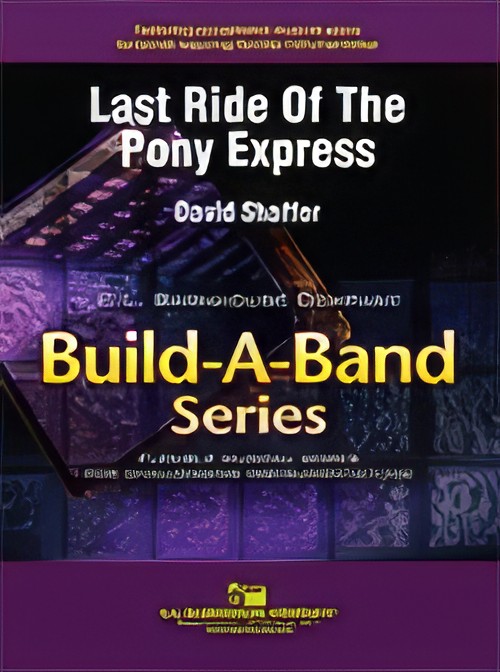 £60.00
£60.00Last Ride of the Pony Express (Flexible Ensemble - Score and Parts) - Shaffer, David
This exciting and very popular David Shaffer composition will sound great when you group performs this outstanding arrangement from the Barnhouse Build-A-Band Series! Designed for groups with severe instrumentation issues or for very small bands, it is playable as long as you have the four main parts covered by the instruments of your choice. Includes optional piano, percussion and mallet percussion parts. Full of energy and solid sounding, Last Ride of the Pony Express is perfect for any concert or contest situation and your students will love performing it.Duration: 4.30
Estimated dispatch 7-14 working days
-
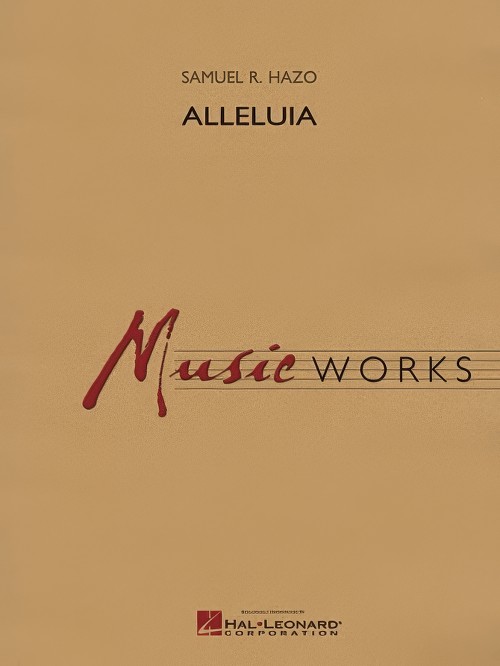 £118.99
£118.99Alleluia (Concert Band - Score and Parts) - Hazo, Samuel R.
Alleluia is a convergence of hauntingly emotive themes that culminate in breath-taking builds. The Kalamazoo Gazette described it as the pinnacle of the concert in which it was premiered, adding that Hazo's master composition takes the listener from "...bells and chimes to full Hosannas. The result was transfiguring! It first fades like a sunset, then explodes in white light, bringing the audience to their feet." Written for mature ensembles, this work will have a powerful impact on the performers as well as all who hear it.Duration: 8.00
Estimated dispatch 7-14 working days
-
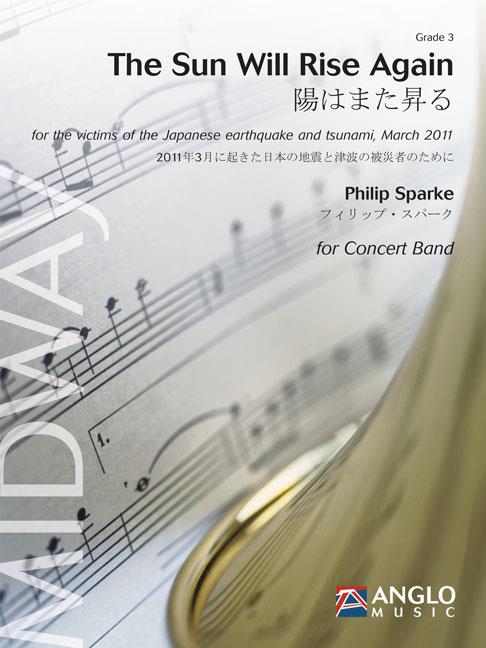 £91.99
£91.99The Sun Will Rise Again (Concert Band - Score & Parts) - Sparke, Philip
The composer writes:On March 11th 2011 a massive 9.0- magnitude earthquake occurred off the coast of north-eastern Japan. I'm writing these programme notes barely a week later and the death toll caused by the quake and resulting tsunami already exceeds 6000, with thousands of people still unaccounted for. I have many friends associated with many bands throughout Japan and one of these, Yutaka Nishida, suggested I write a piece to raise money to help those affected by the disaster. I was immediately attracted by the idea and have arranged Cantilena (a brass band piece recently commissioned by the Grenland International Brass Festival, Norway) for wind band, giving it a new title to honour my friends in the Land of the Rising Sun. I will be donating royalties from this piece to the Japanese Red Cross Society Emergency Relief Fund and am delighted to say that my distributors, De Haske, who will generously also donate all net profits from sales of this piece, have pledged a substantial advance payment to the Red Cross so that what little help this project generates can be immediate. It is my sincere wish that this 'Band Aid' project will allow wind bands around the world support the people of Japan, where bands are a way of life for many, in this difficult time.- Philip SparkeDuration: 4:30
Estimated dispatch 7-14 working days
-
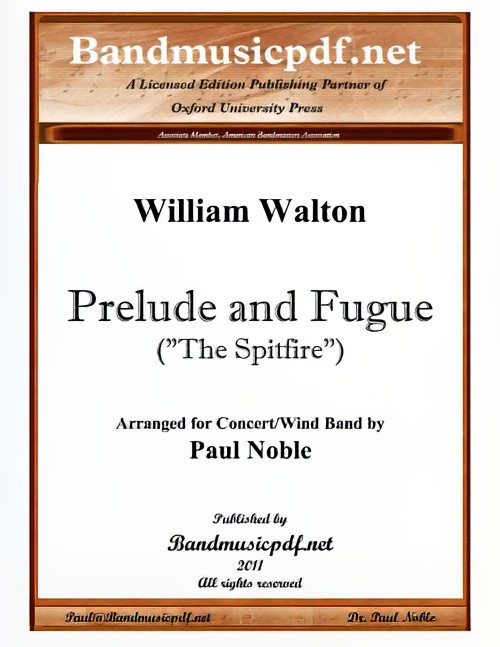 £140.00
£140.00Prelude and Fugue (The Spitfire) (Concert Band - Score and Parts) - Walton, William - Noble, Paul
The Prelude and Fugue (The Spitfire) by William Walton, written to accompany the film, The First of the Few, was the film story of the designer of the Spitfire fighter aircraft, R. J. Mitchell. This work was lifted, almost bodily out of the film score: exceptionally (for film music) it needed hardly any modification to turn it into a first-rate concert piece. The prelude, called by Stephen Lloyd one of Walton's finest marches, is the music heard over the opening credit titles in the movie. A central lyrical solo depicts the exhaustion and dying by illness of the aircraft's designer R. J. Mitchell. The fugue is used to describe the making of the Spitfire, and then the patriotic march returns joined with the fugue to mark the completion of the fighter aircraft. The majestic march-like drama of the Prelude is well-suited for graduation and other ceremonial events, and the total piece is a tour de force for contest performance.
Estimated dispatch 7-14 working days
-
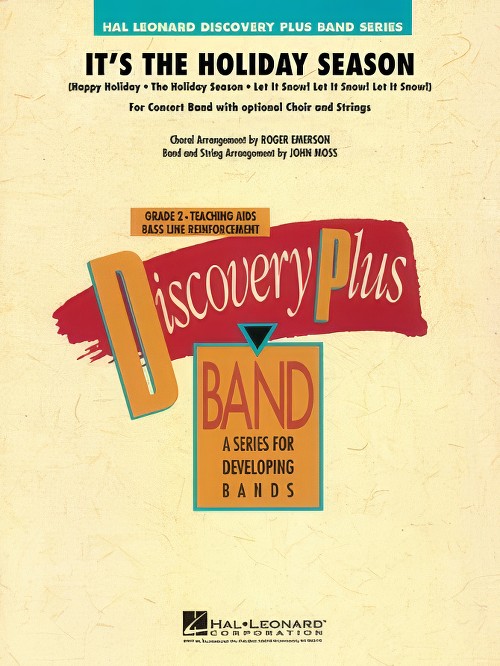 £60.99
£60.99It's the Holiday Season (Concert Band - Score and Parts) - Moss, John
This medley of popular holiday songs is a sparkling selection for a holiday concert finale or community event. For added effect combine this with your school's choir and strings for a truly magical production. Includes: Happy Holiday, The Holiday Season and Let It Snow! Let It Snow! Let It Snow.
Estimated dispatch 7-14 working days
